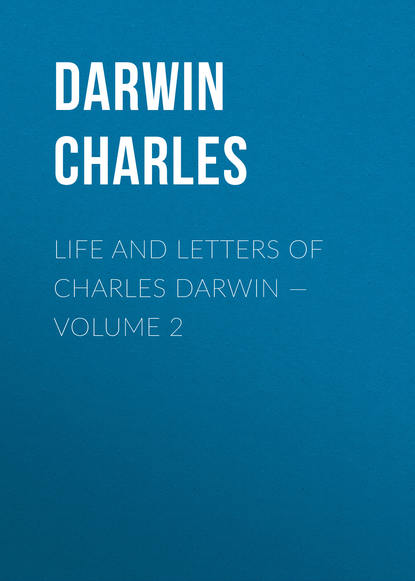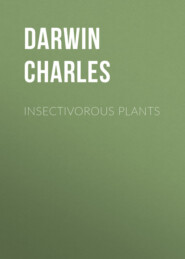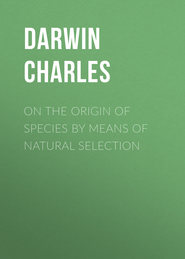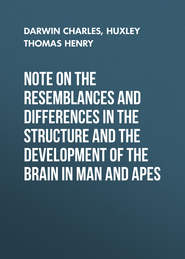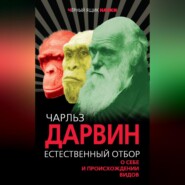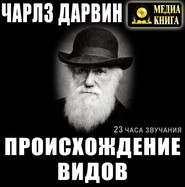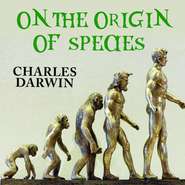По всем вопросам обращайтесь на: info@litportal.ru
(©) 2003-2024.
✖
Life and Letters of Charles Darwin — Volume 2
Настройки чтения
Размер шрифта
Высота строк
Поля
My dear Hooker,
I have heard from Oliver that you will be now at Kew, and so I am going to amuse myself by scribbling a bit. I hope you have thoroughly enjoyed your tour. I never in my life saw anything like the spring flowers this year. What a lot of interesting things have been lately published. I liked extremely your review of De Candolle. What an awfully severe article that by Falconer on Lyell ("Athenaeum", April 4, 1863, page 459. The writer asserts that justice has not been done either to himself or Mr. Prestwich — that Lyell has not made it clear that it was their original work which supplied certain material for the 'Antiquity of Man.' Falconer attempts to draw an unjust distinction between a "philosopher" (here used as a polite word for compiler) like Sir Charles Lyell, and original observers, presumably such as himself, and Mr. Prestwich. Lyell's reply was published in the "Athenaeum", April 18, 1863. It ought to be mentioned that a letter from Mr. Prestwich ("Athenaeum", page 555), which formed part of the controversy, though of the nature of a reclamation, was written in a very different spirit and tone from Dr. Falconer's.); I am very sorry for it; I think Falconer on his side does not do justice to old Perthes and Schmerling... I shall be very curious to see how he [Lyell] answers it t-morrow. (I have been compelled to take in the "Athenaeum" for a while.) I am very sorry that Falconer should have written so spitefully, even if there is some truth in his accusations; I was rather disappointed in Carpenter's letter, no one could have given a better answer, but the chief object of his letter seems to me to be to show that though he has touched pitch he is not defiled. No one would suppose he went so far as to believe all birds came from one progenitor. I have written a letter to the "Athenaeum" ("Athenaeum", 1863, page 554: "The view given by me on the origin or derivation of species, whatever its weaknesses may be, connects (as has been candidly admitted by some of its opponents, such as Pictet, Bronn, etc.), by an intelligible thread of reasoning, a multitude of facts: such as the formation of domestic races by man's selection, — the classification and affinities of all organic beings, — the innumerable gradations in structure and instincts, — the similarity of pattern in the hand, wing, or paddle of animals of the same great class, — the existence of organs become rudimentary by disuse, — the similarity of an embryonic reptile, bird, and mammal, with the retention of traces of an apparatus fitted for aquatic respiration; the retention in the young calf of incisor teeth in the upper jaw, etc. — the distribution of animals and plants, and their mutual affinities within the same region, — their general geological succession, and the close relationship of the fossils in closely consecutive formations and within the same country; extinct marsupials having preceded living marsupials in Australia, and armadillo-like animals having preceded and generated armadilloes in South America, — and many other phenomena, such as the gradual extinction of old forms and their gradual replacement by new forms better fitted for their new conditions in the struggle for life. When the advocate of Heterogeny can thus connect large classes of facts, and not until then, he will have respectful and patient listeners.") (the first and last time I shall take such a step) to say, under the cloak of attacking Heterogeny, a word in my own defence. My letter is to appear next week, so the Editor says; and I mean to quote Lyell's sentence (See the next letter.) in his second edition, on the principle if one puffs oneself, one had better puff handsomely...
CHARLES DARWIN TO C. LYELL. Down, April 18 [1863].
My dear Lyell,
I was really quite sorry that you had sent me a second copy (The second edition of the 'Antiquity of Man' was published a few months after the first had appeared.) of your valuable book. But after a few hours my sorrow vanished for this reason: I have written a letter to the "Athenaeum", in order, under the cloak of attacking the monstrous article on Heterogeny, to say a word for myself in answer to Carpenter, and now I have inserted a few sentences in allusion to your analogous objection (Lyell objected that the mammalia (e.g. bats and seals) which alone have been able to reach oceanic islands ought to have become modified into various terrestrial forms fitted to fill various places in their new home. My father pointed out in the "Athenaeum" that Sir Charles has in some measure answered his own objection, and went on to quote the "amended sentence" ('Antiquity of Man,' 2nd Edition page 469) as showing how far Lyell agreed with the general doctrines of the "Origin of Species': "Yet we ought by no means to undervalue the importance of the step which will have been made, should it hereafter become the generally received opinion of men of science (as I fully expect it will) that the past changes of the organic world have been brought about by the subordinate agency of such causes as Variation and Natural Selection." In the first edition the words (as I fully expect it will," do not occur.) about bats on islands, and then with infinite slyness have quoted your amended sentence, with your parenthesis ("as I fully believe") (My father here quotes Lyell incorrectly; see the previous foot-note.); I do not think you can be annoyed at my doing this, and you see, that I am determined as far as I can, that the public shall see how far you go. This is the first time I have ever said a word for myself in any journal, and it shall, I think, be the last. My letter is short, and no great things. I was extremely concerned to see Falconer's disrespectful and virulent letter. I like extremely your answer just read; you take a lofty and dignified position, to which you are so well entitled. (In a letter to Sir J.D. Hooker he wrote: "I much like Lyell's letter. But all this squabbling will greatly sink scientific men. I have seen sneers already in the 'Times'.")
I suspect that if you had inserted a few more superlatives in speaking of the several authors there would have been none of this horrid noise. No one, I am sure, who knows you could doubt about your hearty sympathy with every one who makes any little advance in science. I still well remember my surprise at the manner in which you listened to me in Hart Street on my return from the "Beagle's" voyage. You did me a world of good. It is horridly vexatious that so frank and apparently amiable a man as Falconer should have behaved so. (It is to this affair that the extract from a letter to Falconer, given in volume i., refers.) Well it will all soon be forgotten...
[In reply to the above-mentioned letter of my father's to the "Athenaeum", an article appeared in that Journal (May 2nd, 1863, page 586), accusing my father of claiming for his views the exclusive merit of "connecting by an intelligible thread of reasoning" a number of facts in morphology, etc. The writer remarks that, "The different generalizations cited by Mr. Darwin as being connected by an intelligible thread of reasoning exclusively through his attempt to explain specific transmutation are in fact related to it in this wise, that they have prepared the minds of naturalists for a better reception of such attempts to explain the way of the origin of species from species."
To this my father replied in the "Athenaeum" of May 9th, 1863:]
Down, May 5 [1863].
I hope that you will grant me space to own that your reviewer is quite correct when he states that any theory of descent will connect, "by an intelligible thread of reasoning," the several generalizations before specified. I ought to have made this admission expressly; with the reservation, however, that, as far as I can judge, no theory so well explains or connects these several generalizations (more especially the formation of domestic races in comparison with natural species, the principles of classification, embryonic resemblance, etc.) as the theory, or hypothesis, or guess, if the reviewer so likes to call it, of Natural Selection. Nor has any other satisfactory explanation been ever offered of the almost perfect adaptation of all organic beings to each other, and to their physical conditions of life. Whether the naturalist believes in the views given by Lamarck, by Geoffrey St. Hilaire, by the author of the 'Vestiges,' by Mr. Wallace and myself, or in any other such view, signifies extremely little in comparison with the admission that species have descended from other species, and have not been created immutable; for he who admits this as a great truth has a wide field opened to him for further inquiry. I believe, however, from what I see of the progress of opinion on the Continent, and in this country, that the theory of Natural Selection will ultimately be adopted, with, no doubt, many subordinate modifications and improvements.
CHARLES DARWIN.
[In the following, he refers to the above letter to the "Athenaeum:]
CHARLES DARWIN TO J.D. HOOKER. Leith Hill Place, Saturday [May 11, 1863].
My dear Hooker,
You give good advice about not writing in newspapers; I have been gnashing my teeth at my own folly; and this not caused by — 's sneers, which were so good that I almost enjoyed them. I have written once again to own to a certain extent of truth in what he says, and then if I am ever such a fool again, have no mercy on me. I have read the squib in "Public Opinion" ("Public Opinion", April 23, 1863. A lively account of a police case, in which the quarrels of scientific men are satirised. Mr. John Bull gives evidence that —
"The whole neighbourhood was unsettled by their disputes; Huxley quarrelled with Owen, Owen with Darwin, Lyell with Owen, Falconer and Prestwich with Lyell, and Gray the menagerie man with everybody. He had pleasure, however, in stating that Darwin was the quietest of the set. They were always picking bones with each other and fighting over their gains. If either of the gravel sifters or stone breakers found anything, he was obliged to conceal it immediately, or one of the old bone collectors would be sure to appropriate it first and deny the theft afterwards, and the consequent wrangling and disputes were as endless as they were wearisome.
"Lord Mayor. — Probably the clergyman of the parish might exert some influence over them?
"The gentleman smiled, shook his head, and stated that he regretted to say that no class of men paid so little attention to the opinions of the clergy as that to which these unhappy men belonged."); it is capital; if there is more, and you have a copy, do lend it. It shows well that a scientific man had better be trampled in dirt than squabble. I have been drawing diagrams, dissecting shoots, and muddling my brains to a hopeless degree about the divergence of leaves, and have of course utterly failed. But I can see that the subject is most curious, and indeed astonishing...
[The next letter refers to Mr. Bentham's presidential address to the Linnean Society (May 25, 1863). Mr. Bentham does not yield to the new theory of Evolution, "cannot surrender at discretion as long as many important outworks remain contestable." But he shows that the great body of scientific opinion is flowing in the direction of belief.
The mention of Pasteur by Mr. Bentham is in reference to the promulgation "as it were ex cathedra," of a theory of spontaneous generation by the reviewer of Dr. Carpenter in the "Athenaeum" (March 28, 1863). Mr. Bentham points out that in ignoring Pasteur's refutation of the supposed facts of spontaneous generation, the writer fails to act with "that impartiality which every reviewer is supposed to possess."]
CHARLES DARWIN TO G. BENTHAM. Down, May 22 [1863].
My dear Bentham,
I am much obliged for your kind and interesting letter. I have no fear of anything that a man like you will say annoying me in the very least degree. On the other hand, any approval from one whose judgment and knowledge I have for many years so sincerely respected, will gratify me much. The objection which you well put, of certain forms remaining unaltered through long time and space, is no doubt formidable in appearance, and to a certain extent in reality according to my judgment. But does not the difficulty rest much on our silently assuming that we know more than we do? I have literally found nothing so difficult as to try and always remember our ignorance. I am never weary, when walking in any new adjoining district or country, of reflecting how absolutely ignorant we are why certain old plants are not there present, and other new ones are, and others in different proportions. If we once fully feel this, then in judging the theory of Natural Selection, which implies that a form will remain unaltered unless some alteration be to its benefit, is it so very wonderful that some forms should change much slower and much less, and some few should have changed not at all under conditions which to us (who really know nothing what are the important conditions) seem very different. Certainly a priori we might have anticipated that all the plants anciently introduced into Australia would have undergone some modification; but the fact that they have not been modified does not seem to me a difficulty of weight enough to shake a belief grounded on other arguments. I have expressed myself miserably, but I am far from well to-day.
I am very glad that you are going to allude to Pasteur; I was struck with infinite admiration at his work. With cordial thanks, believe me, dear Bentham,
Yours very sincerely, CH. DARWIN.
P.S. — In fact, the belief in Natural Selection must at present be grounded entirely on general considerations. (1) On its being a vera causa, from the struggle for existence; and the certain geological fact that species do somehow change. (2) From the analogy of change under domestication by man's selection. (3) And chiefly from this view connecting under an intelligible point of view a host of facts. When we descend to details, we can prove that no one species has changed [i.e. we cannot prove that a single species has changed]; nor can we prove that the supposed changes are beneficial, which is the groundwork of the theory. Nor can we explain why some species have changed and others have not. The latter case seems to me hardly more difficult to understand precisely and in detail than the former case of supposed change. Bronn may ask in vain, the old creationist school and the new school, why one mouse has longer ears than another mouse, and one plant more pointed leaves than another plant.
CHARLES DARWIN TO G. BENTHAM. Down, June 19 [1863].
My dear Bentham,
I have been extremely much pleased and interested by your address, which you kindly sent me. It seems to be excellently done, with as much judicial calmness and impartiality as the Lord Chancellor could have shown. But whether the "immutable" gentlemen would agree with the impartiality may be doubted, there is too much kindness shown towards me, Hooker, and others, they might say. Moreover I verily believe that your address, written as it is, will do more to shake the unshaken and bring on those leaning to our side, than anything written directly in favour of transmutation. I can hardly tell why it is, but your address has pleased me as much as Lyell's book disappointed me, that is, the part on species, though so cleverly written. I agree with all your remarks on the reviewers. By the way, Lecoq (Author of 'Geographie Botanique.' 9 vols. 1854-58.) is a believer in the change of species. I, for one, can conscientiously declare that I never feel surprised at any one sticking to the belief of immutability; though I am often not a little surprised at the arguments advanced on this side. I remember too well my endless oscillations of doubt and difficulty. It is to me really laughable when I think of the years which elapsed before I saw what I believe to be the explanation of some parts of the case; I believe it was fifteen years after I began before I saw the meaning and cause of the divergence of the descendants of any one pair. You pay me some most elegant and pleasing compliments. There is much in your address which has pleased me much, especially your remarks on various naturalists. I am so glad that you have alluded so honourably to Pasteur. I have just read over this note; it does not express strongly enough the interest which I have felt in reading your address. You have done, I believe, a real good turn to the RIGHT SIDE. Believe me, dear Bentham,
Yours very sincerely, CH. DARWIN.
1864.
[In my father's diary for 1864 is the entry, "Ill all January, February, March." About the middle of April (seven months after the beginning of the illness in the previous autumn) his health took a turn for the better. As soon as he was able to do any work, he began to write his papers on Lythrum, and on Climbing Plants, so that the work which now concerns us did not begin until September, when he again set to work on 'Animals and Plants.' A letter to Sir J.D. Hooker gives some account of the r-commencement of the work: "I have begun looking over my old MS., and it is as fresh as if I had never written it; parts are astonishingly dull, but yet worth printing, I think; and other parts strike me as very good. I am a complete millionaire in odd and curious little facts, and I have been really astounded at my own industry whilst reading my chapters on Inheritance and Selection. God knows when the book will ever be completed, for I find that I am very weak and on my best days cannot do more than one or one and a half hours' work. It is a good deal harder than writing about my dear climbing plants."
In this year he received the greatest honour which a scientific man can receive in this country — the Copley Medal of the Royal Society. It is presented at the Anniversary Meeting on St. Andrew's Day (November 30), the medalist being usually present to receive it, but this the state of my father's health prevented. He wrote to Mr. Fox on this subject: —
"I was glad to see your hand-writing. The Copley, being open to all sciences and all the world, is reckoned a great honour; but excepting from several kind letters, such things make little difference to me. It shows, however, that Natural Selection is making some progress in this country, and that pleases me. The subject, however, is safe in foreign lands."
To Sir J.D. Hooker, also, he wrote: —
"How kind you have been about this medal; indeed, I am blessed with many good friends, and I have received four or five notes which have warmed my heart. I often wonder that so old a worn-out dog as I am is not quite forgotten. Talking of medals, has Falconer had the Royal? he surely ought to have it, as ought John Lubbock. By the way, the latter tells me that some old members of the Royal are quite shocked at my having the Copley. Do you know who?"
He wrote to Mr. Huxley: —
"I must and will answer you, for it is a real pleasure for me to thank you cordially for your note. Such notes as this of yours, and a few others, are the real medal to me, and not the round bit of gold. These have given me a pleasure which will long endure; so believe in my cordial thanks for your note."
Sir Charles Lyell, writing to my father in November 1864 ('Life,' vol. ii. page 384), speaks of the supposed malcontents as being afraid to crown anything so unorthodox as the 'Origin.' But he adds that if such were their feelings "they had the good sense to draw in their horns." It appears, however, from the same letter, that the proposal to give the Copley Medal to my father in the previous year failed owing to a similar want of courage — to Lyell's great indignation.
In the "Reader", December 3, 1864, General Sabine's presidential address at the Anniversary Meeting is reported at some length. Special weight was laid on my father's work in Geology, Zoology, and Botany, but the 'Origin of Species' is praised chiefly as containing "a mass of observations," etc. It is curious that as in the case of his election to the French Institution, so in this case, he was honoured not for the great work of his life, but for his less important work in special lines. The paragraph in General Sabine's address which refers to the 'Origin of Species,' is as follows: —
"In his most recent work 'On the Origin of Species,' although opinions may be divided or undecided with respect to its merits in some respects, all will allow that it contains a mass of observations bearing upon the habits, structure, affinities, and distribution of animals, perhaps unrivalled for interest, minuteness, and patience of observation. Some amongst us may perhaps incline to accept the theory indicated by the title of this work, while others may perhaps incline to refuse, or at least to remit it to a future time, when increased knowledge shall afford stronger grounds for its ultimate acceptance or rejection. Speaking generally and collectively, we have expressly omitted it from the grounds of our award."
I believe I am right in saying that no little dissatisfaction at the President's manner of allusion to the 'Origin' was felt by some Fellows of the Society.
The presentation of the Copley Medal is of interest in another way, inasmuch as it led to Sir C. Lyell making, in his after-dinner speech, a "confession of faith as to the 'Origin.'" He wrote to my father ('Life,' vol. ii. page 384), "I said I had been forced to give up my old faith without thoroughly seeing my way to a new one. But I think you would have been satisfied with the length I went."]
CHARLES DARWIN TO T.H. HUXLEY. Down, October 3 [1864].
My dear Huxley,
If I do not pour out my admiration of your article ("Criticisms on the Origin of Species," 'Nat. Hist. Review,' 1864. Republished in 'Lay Sermons,' 1870, page 328. The work of Professor Kolliker referred to is 'Ueber die Darwin'sche Schopfungstheorie' (Leipzig, 1864). Toward Professor Kolliker my father felt not only the respect due to so distinguished a naturalist (a sentiment well expressed in Professor Huxley's review), but he had also a personal regard for him, and often alluded with satisfaction to the visit which Professor Kolliker paid at Down.) on Kolliker, I shall explode. I never read anything better done. I had much wished his article answered, and indeed thought of doing so myself, so that I considered several points. You have hit on all, and on some in addition, and oh! by Jove, how well you have done it. As I read on and came to point after point on which I had thought, I could not help jeering and scoffing at myself, to see how infinitely better you had done it than I could have done. Well, if any one, who does not understand Natural Selection, will read this, he will be a blockhead if it is not as clear as daylight. Old Flourens ('Examen du livre de M. Darwin sur l'origine des especes.' Par P. Flourens. 8vo. Paris, 1864.) was hardly worth the powder and shot; but how capitally you bring in about the Academician, and your metaphor of the sea-sand is INIMITABLE.
It is a marvel to me how you can resist becoming a regular reviewer. Well, I have exploded now, and it has done me a deal of good...
[In the same article in the 'Natural History Review,' Mr. Huxley speaks of the book above alluded to by Flourens, the Secretaire Perpetuel of the Academie des Sciences, as one of the two "most elaborate criticisms" of the 'Origin of Species' of the year. He quotes the following passage: —
"M. Darwin continue: 'Aucune distinction absolue n'a ete et ne peut etre entre les especes et les varietes!' Je vous ai deja dit que vous vous trompiez; une distinction absolue separe les varietes d'avec les especes." Mr. Huxley remarks on this, "Being devoid of the blessings of an Academy in England, we are unaccustomed to see our ablest men treated in this way even by a Perpetual Secretary." After demonstrating M. Flourens' misapprehension of Natural Selection, Mr. Huxley says, "How one knows it all by heart, and with what relief one reads at page 65 'Je laisse M. Darwin.'"
On the same subject my father wrote to Mr. Wallace: —





